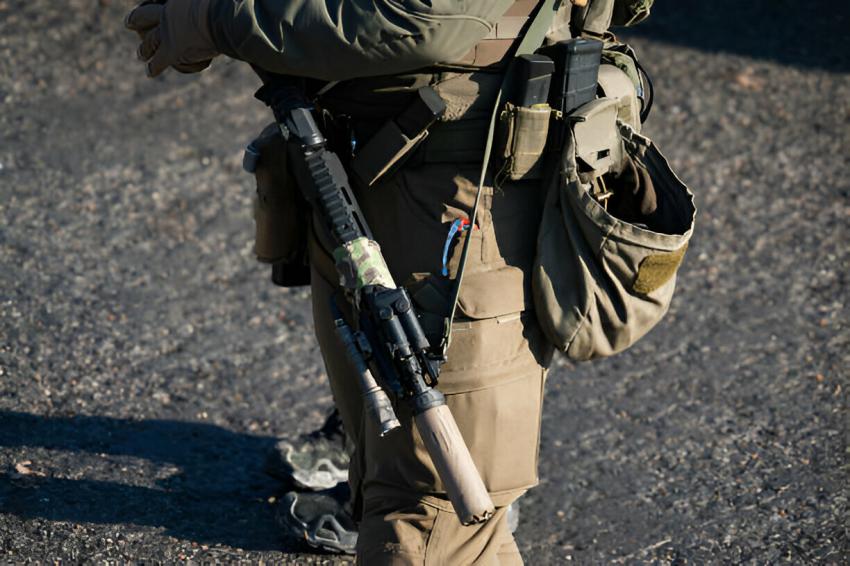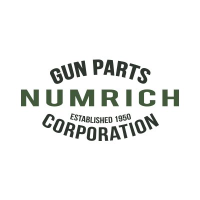How To Choose The Best Suppressor For Your Firearm

Thinking about adding a suppressor to your firearm? You're not alone. Interest in these sound-dampening devices has been steadily growing in the USA. In fact, the American Suppressor Association reported a record number of registered suppressors in 2020, exceeding two million! This surge in popularity highlights the increasing understanding of their benefits.
But with so many options on the market, picking the right one can feel like navigating a maze. Don't worry, we're here to guide you through the process. This comprehensive guide will break down everything you need to know to choose the best suppressor for your specific firearm and needs.
What Exactly Is a Suppressor?
Simply put, a suppressor (also often called a silencer) is a device attached to the muzzle of a firearm that reduces the sound and muzzle flash of a gunshot. It works by trapping and slowing down the rapidly expanding gases that propel the bullet. Think of it like a car muffler but for your firearm.
While Hollywood often portrays suppressors as making gunshots completely silent, the reality is different. They significantly reduce the decibel level, making the shot much less jarring and safer for your hearing and those around you. Studies have shown that suppressors can reduce gunshot noise by 20-35 decibels, bringing many firearms below the threshold for hearing damage (around 140 dB).
Beyond noise reduction, suppressors can also offer other benefits, such as reduced recoil and muzzle flash, leading to improved shooting accuracy and comfort.
Decoding the Different Types of Suppressors
The world of suppressors isn't one-size-fits-all. Different designs cater to various needs and firearm types. Here's a look at some common categories:
Rimfire Suppressors: Designed for smaller calibers like .22 LR, these are often lightweight and relatively inexpensive. They are a popular choice for recreational shooting and pest control.
Pistol Suppressors: Compact and designed to work with handguns, these suppressors often utilize a "booster" or "Nielsen device" to ensure reliable cycling of semi-automatic pistols.
Rifle Suppressors: Built to handle the higher pressures and larger calibers of rifles, these suppressors come in various sizes and materials, optimized for different shooting applications, from hunting to tactical use.
Shotgun Suppressors: While less common, suppressors for shotguns exist. They are typically larger and designed to reduce the unique sound signature of a shotgun blast.
Within these categories, you'll find variations in internal baffle designs, which play a crucial role in sound reduction and backpressure. Common baffle types include K-baffles, M-baffles, and stepped baffles, each offering different performance characteristics.
Key Factors to Consider Before You Buy
Choosing the right suppressor involves careful consideration of several factors:
Caliber Compatibility: This is the most critical factor. A suppressor must be rated for the caliber of your firearm. Using a suppressor with an incompatible caliber can lead to serious damage to the suppressor and potential harm to the shooter. Always check the manufacturer's specifications.
Materials: Suppressors are typically made from materials like aluminum, stainless steel, titanium, or a combination thereof.
- Aluminum: Lightweight and cost-effective, suitable for lower-pressure calibers and less frequent use.
- Stainless Steel: Durable and offers good corrosion resistance, a popular all-around choice.
- Titanium: Extremely lightweight and strong, ideal for weight-sensitive applications but generally more expensive.
Mounting Options: How the suppressor attaches to your firearm is another key consideration. Common mounting options include:
- Direct Thread: The simplest method, where the suppressor screws directly onto the threaded barrel.
- Quick Detach (QD) Mounts: Allow for quickly attachment and detachment of the suppressor, often using a proprietary system with a muzzle device (like a flash hider or muzzle brake) that stays on the firearm. QD mounts offer versatility but can add length and weight.
Size and Weight: Consider the balance and handling of your firearm with the suppressor attached. A longer and heavier suppressor will add more weight to the muzzle, potentially affecting accuracy and maneuverability.
Sound Reduction: While all suppressors reduce noise, the level of reduction varies. Look for decibel reduction ratings provided by the manufacturer. Keep in mind that the subjective perception of sound can also play a role.
Durability and Maintenance: Depending on your shooting habits, durability is crucial. Consider how easy the suppressor is to clean and maintain. Some suppressors are sealed, while others can be disassembled for cleaning.
Your Intended Use: Are you primarily using the suppressor for hunting, target shooting, home defense, or tactical applications? Your intended use will influence the features and performance characteristics that are most important to you.
The Legal Landscape of Suppressor Ownership in the USA
It's crucial to understand that suppressors are regulated under the National Firearms Act (NFA) of 1934. This means owning a suppressor requires compliance with federal law, which typically involves:
Residency in a Permitting State: Not all states allow civilian ownership of suppressors. Make sure your state permits their ownership.
Background Check: You will undergo a thorough background check by the FBI.
Payment of a $200 Tax Stamp: This non-refundable tax is required for each suppressor you purchase.
Registration with the ATF: The suppressor must be registered with the Bureau of Alcohol, Tobacco, Firearms, and Explosives (ATF).
Waiting Period: The approval process for a tax stamp can take several months.
It's highly recommended to consult with local and state authorities, as well as an NFA dealer, to ensure you are complying with all applicable laws and regulations in your area.
Conclusion: Finding Your Perfect Sound Signature
Choosing the best suppressor for your firearm is a significant decision that involves understanding your needs, your firearm's specifications, and the legal requirements. By considering factors like caliber compatibility, materials, mounting options, and your intended use, you can narrow down your choices and select a suppressor that enhances your shooting experience.
Remember to prioritize safety and legality throughout the process. Research reputable manufacturers, consult with experienced shooters or dealers, and always ensure you are complying with all federal, state, and local laws regarding suppressor ownership.
Take your time, do your homework, and soon you'll be enjoying the benefits of shooting with a suppressor, reduced noise, less recoil, and a more comfortable experience on the range or in the field. The journey to a quieter shot starts with informed choices.
